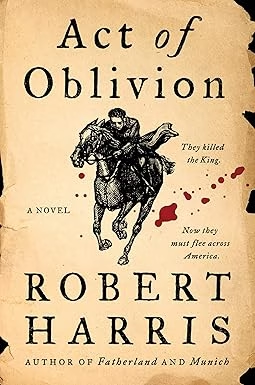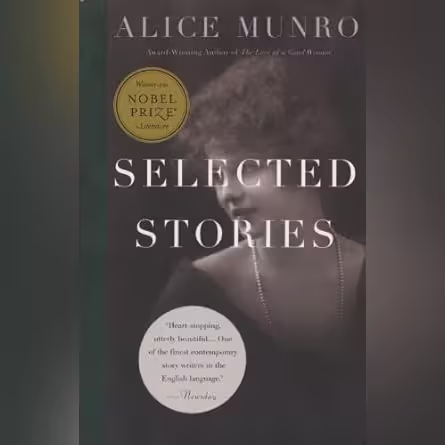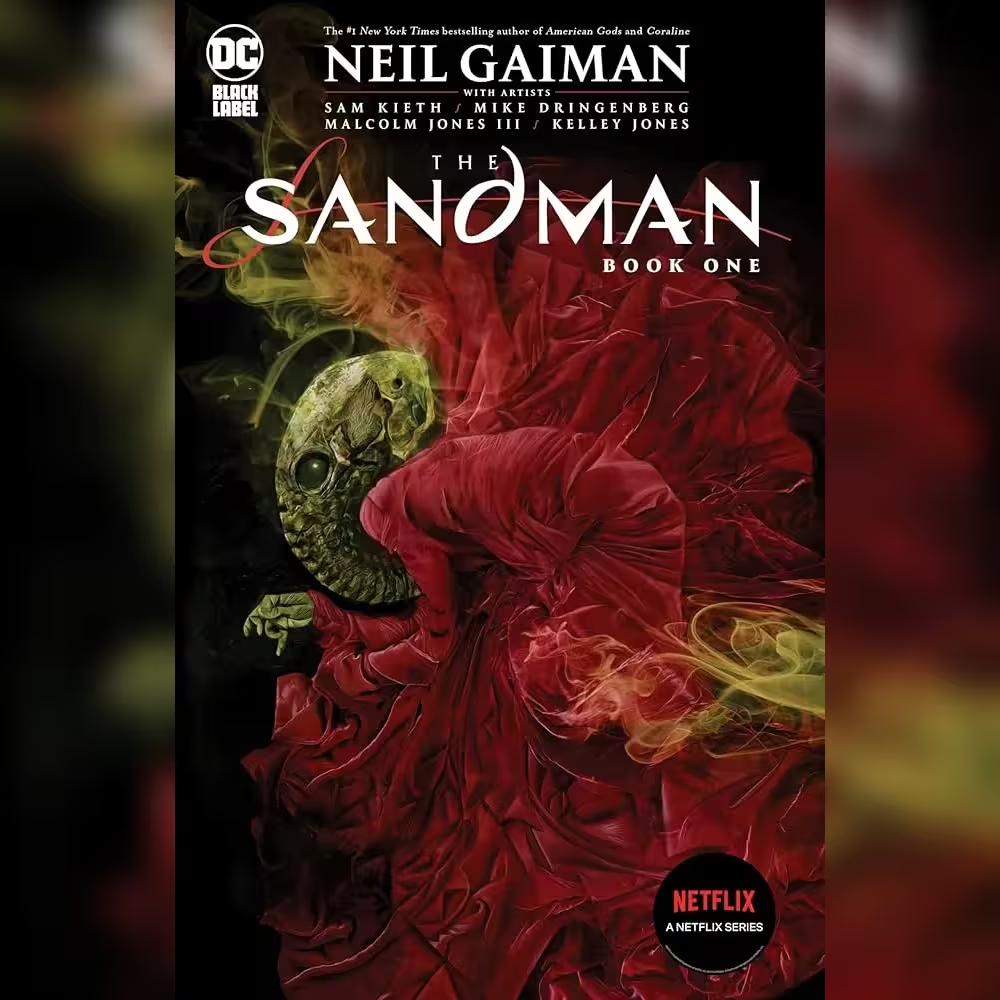This book review of Act of Oblivion by Robert Harris is part of my U.S. History Reading Quest.
This post pay contain affiliate links, which means that I may receive a commission if you make a purchase using these links. As an Amazon Associate I earn from qualifying purchases. Thanks for helping to support the content on this site.

Act of Oblivion
- Author: Robert Harris
- Genre: Fiction, Historical Fiction
- Publisher: Harper
- Pages: 592 pages, Paperback
The past is never truly buried. It lives on in the memories of those who seek justice—or revenge.
Robert Harris, Act of Oblivion
I just finished reading Act of Oblivion by Robert Harris and wow – I was really pleasantly surprised! I’d never read anything by Robert Harris, though I’ve been aware of his book about Pompeii for a while. As usual, I do as little research as possible on an author or a book ahead of reading it, preferring to let my reaction to the author and the work be as neutral as possible. I’m usually thankful for that approach and this time is no different.
This book took me on a thrilling adventure into the 17th century, a time and place where American colonization was deeply intertwined with conflicts in Europe. For those following along, this is part of my U.S. History reading quest where I’ve been reading through sequential periods of U.S. History.
This book brought something I really wasn’t expecting —a story that connects early colonial America to the aftermath of the English Civil War. For whatever reason, I just never linked those two eras and events togther, but in retrospect, it makes complete sense.
I didn’t think I’d be so captivated by events in early colonial America, but Harris weaves an incredible narrative around three men. Two are fugitive regicides on the run and the other the relentless man hunting them. Harris manages to capture both the political upheaval in England and the challenges of life in the colonies with a rare intensity. He brings the time period to life with stunning details and a balance of fact and fiction that felt really well balanced.
The book offered more than just historical scenes—it opened a window into the lives, beliefs, and hardships of people caught between worlds. To me, Harris’s ability to capture the raw emotions and essence of this time period makes this a must-read.
Historical Context
Act of Oblivion takes place during the late 17th century, right after the English Civil War, a conflict that tore apart England’s monarchy and pitted King Charles I against Parliament. After the Parliamentarians won, they executed King Charles I—an unthinkable act at the time. But when Charles II restored the monarchy, he labeled many who supported the king’s death as traitors and passed the “Act of Oblivion” law to hunt down those involved. Harris focuses on two of these “regicides,” those who signed the death warrant of the king. Some regicides fled to New England, and Harris captures this transatlantic hunt with remarkable authenticity.
Harris’s attention to historical detail is incredible. His descriptions of life in the colonies felt extremely real, from the cramped towns to the wild frontier. The historical accuracy in Act of Oblivion is also impressive. He includes real people and events while building his story around the historical record. It was remarkable how well Harris captured l the tension between the ideals of liberty in the colonies and the loyalty to England, a conflict that eventually shapes America’s future. Harris shows how colonists had to navigate survival, loyalty, and justice—a balance that wasn’t easy for anyone involved.
Plot Summary
The novel follows the intense pursuit of two men deeply involved in the execution of King Charles I. These fugitives have found temporary refuge in New England, hoping to escape punishment under the Act of Oblivion. However, a relentless royal agent named Richard Nayler is on their trail, driven by duty and a personal vendetta. This mission unfolds across England and the American colonies, showing readers both sides of the Atlantic as Nayler closes in on his prey.
Harris does an incredible job weaving tension and suspense through the story, and as the chase unfolds, the stakes grow higher. The fugitives’ sense of guilt and their struggle for redemption are central to the plot, as is Nayler’s determination to serve justice. The novel explores themes of loyalty, betrayal, and the cost of war—both in terms of lives and moral boundaries. Act of Oblivion offers a gripping story of pursuit that goes beyond simple retribution, digging into what it means to seek and find forgiveness, even when justice looms nearby.
My Review
Deep Characters and Relationships
One of the things I enjoyed most in Act of Oblivion is how Harris brings his characters to life. Every person in this story feels fully realized, from the royalists hunting the regicides to the families they meet along the way. Richard Nayler is the royal agent charged with tracking down the fugitives. He is fascinating. For those fans of Joe Abercrombie, for some reason I got some mild Sand dan Glokta vibes. His commitment to his duty is almost chilling at times. Harris’ portrayal combines passion and resentment in a way that makes him so much more than just a “hunter.” There’s a humanity in him that makes you question who’s truly “right” or “wrong.” I found myself constantly wondering: is he motivated by justice or revenge?
Meanwhile, the fugitives also come across as very authentic, complex men burdened by choices they believed were for the greater good. There’s a moment when one of them reflects, “Every action has a consequence, and sometimes the consequence is to be forever pursued.” This sums up the regret and the unending consequences of their choices really well. Watching their journey, both physical and emotional, gave me an appreciation for the heavy burdens they carried.
Themes: Justice and Forgiveness
The themes in Act of Oblivion are powerful and timely, especially when it comes to justice, forgiveness, and the cost of loyalty. The novel questions what it means to be loyal to a country, a cause, or even one’s own beliefs. Richard Nayler’s pursuit of the fugitives isn’t just about capturing them—it’s about proving loyalty to a restored monarchy and the comfort and honor that come with a long-held tradition of national stature. But his personal sacrafice makes it clear it’s also about much more than that.
It’s more subtle, but forgiveness is another theme that’s played out in this book as well, albeit a bit more subtly. The fugitives wrestle with their past decisions, knowing they can’t take back the roles they played. There’s a kind of unspoken question in the book about whether they even deserve forgiveness, and Harris doesn’t shy away from exploring this. I love the fine line that Harris walks with his characters, showing great balance between acts of courage and loyalty and the toll of consequences for those acts – righteous or not – that time can bring.
Stars of the Show: Setting and Atmosphere
It’s not an exaggeration in my opinion to say that Harris’ writing literally feels like it transports you to another time and era and leaves you there to fend for yourself (in a good way) as a rich observer to the time and place. While I obviously have no idea exactly what it was like to live in 17th century England or New England, nothing felt unbelievable about Harris’ portrayal of those worlds.
Harris just has a gift for creating vivid settings. The contrast between the rugged wilderness of New England and the structured society of England is so striking.The still nascent American colonies are depicted as harsh and unforgiving, and Harris paints a fully believable picture of the dangers and challenges that colonists faced. Everything from the early settlements to forests and small villages are so well-described. At times I felt like I could feel the rough wood of a colonial cabin or the chill of a New England winter with winds whipping off a cliff under grey skies.
I also loved how Harris showed the stark contrast between New England and England. Every scene in England felt so much more tense—political pressures filled every setting, from courtrooms to taverns, where everyone constantly watched their step. This tense atmosphere perfectly suited a story about people with completely upended lives and loyalties. By using both settings, Harris really captured the wide-reaching impact of the regicides’ actions and the king’s execution. It’s a strong reminder of how one historic event can ripple out and shape people’s lives and choices across an ocean.
Style and Structure
Harris’s writing in Act of Oblivion is smooth and engaging. His prose is straightforward yet full of emotional depth. I never felt lost in the history, even though I’m by no means an expert in 17th-century English politics. Harris explains the context without slowing the story, weaving historical facts into the narrative naturally. I even really appreciated how he manages to bring in quotes and source documents in a way that felt much more natural to the story and authentic to the characters.
The alternating viewpoints kept the story really dynamic, which I always love. Following both the hunter and the hunted gave me a full view of the stakes and showed the shared humanity between all the characters, no matter which “side” they were on. The short chapters made it so easy to keep saying, “just one more” (which I definitely did a lot!). Harris’s writing style deserves praise too—it’s clear, vivid, and even a little poetic without ever feeling overdone. His words have a weight that perfectly matches the seriousness of the story.
Parting Thoughts
This book caught me off guard – in a really good way. I was expecting to enjoy it, but I wasn’t quite expecting it to be one of my favorite books of the year. I highly recommend it to anyone interested in historical fiction or early American history. It’s a story about loyalty, justice, and the human cost of war that transcends time. Harris’s ability to create such an intense, morally complex story within a well-researched historical context is amazing. He brings the people and places of this era to life in a way that feels personal and relatable.
For anyone who’s fascinated by the tangled history of England and early America, this novel offers a glimpse into a time when the future was still uncertain. Even if you’re less interested in the history – the story is just really good! I’d love to hear what other readers think about this novel—whether it’s the characters, themes, or historical details that resonated most with them. Please share your thoughts!
Other Books You Might Enjoy
- Book Review of Columbus: The Four Voyages by Laurence Bergreen
- Reading Guide for the Underground Railroad by Colson Whitehead
About the Author
Robert Harris is a British author best known for his historical fiction and thrillers. He started his career as a journalist, writing for major UK newspapers and working for the BBC. His first novel, Fatherland, became a bestseller and established him in historical fiction. Harris often writes about real events with a fictional twist, like in Pompeii and Munich. His book An Officer and a Spy won the Walter Scott Prize for historical fiction. Over his career, Harris has earned a reputation for blending suspense with historical accuracy, capturing readers worldwide.
Reading Details
Start date: November 11, 2024
Finish date: November 13, 2024


